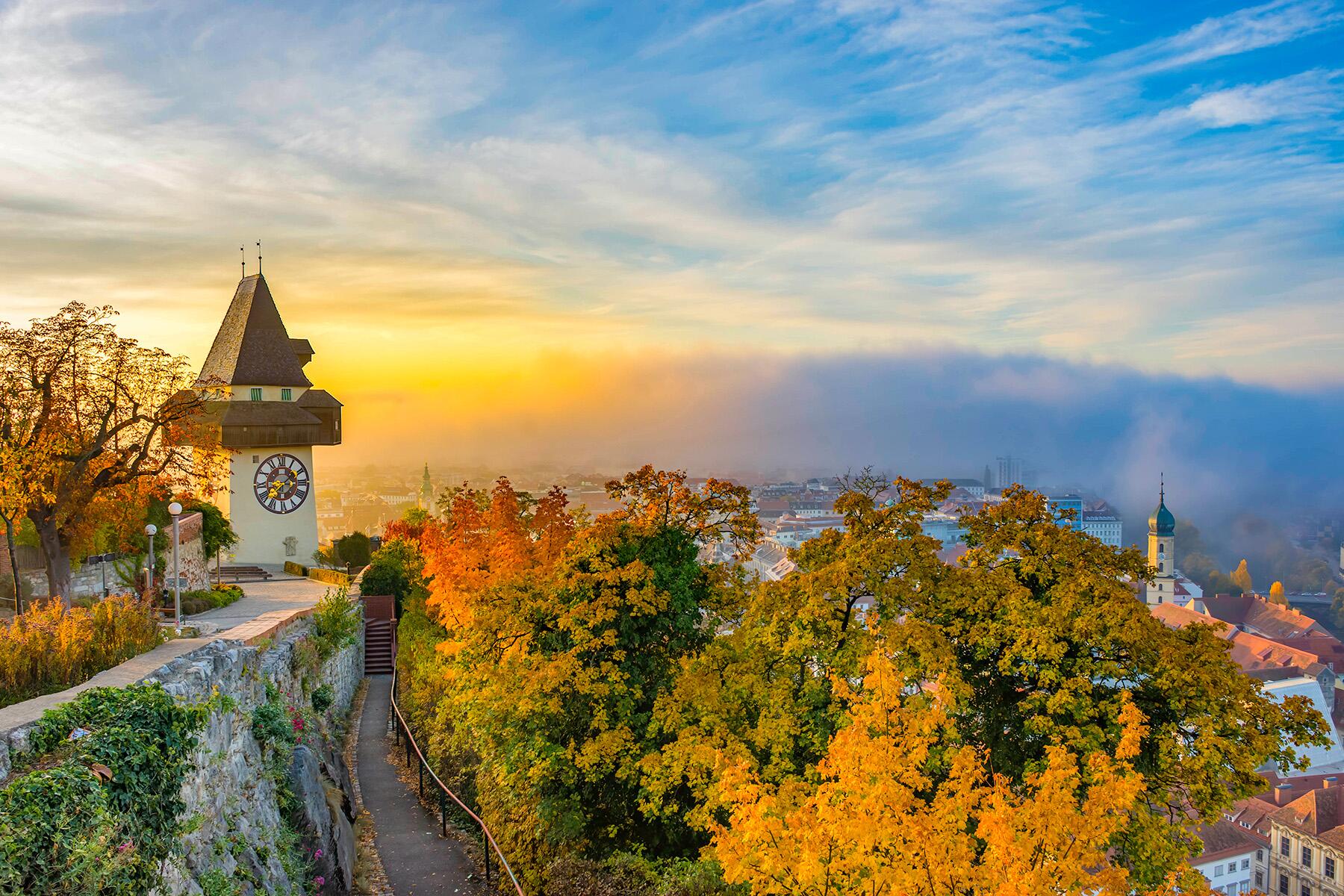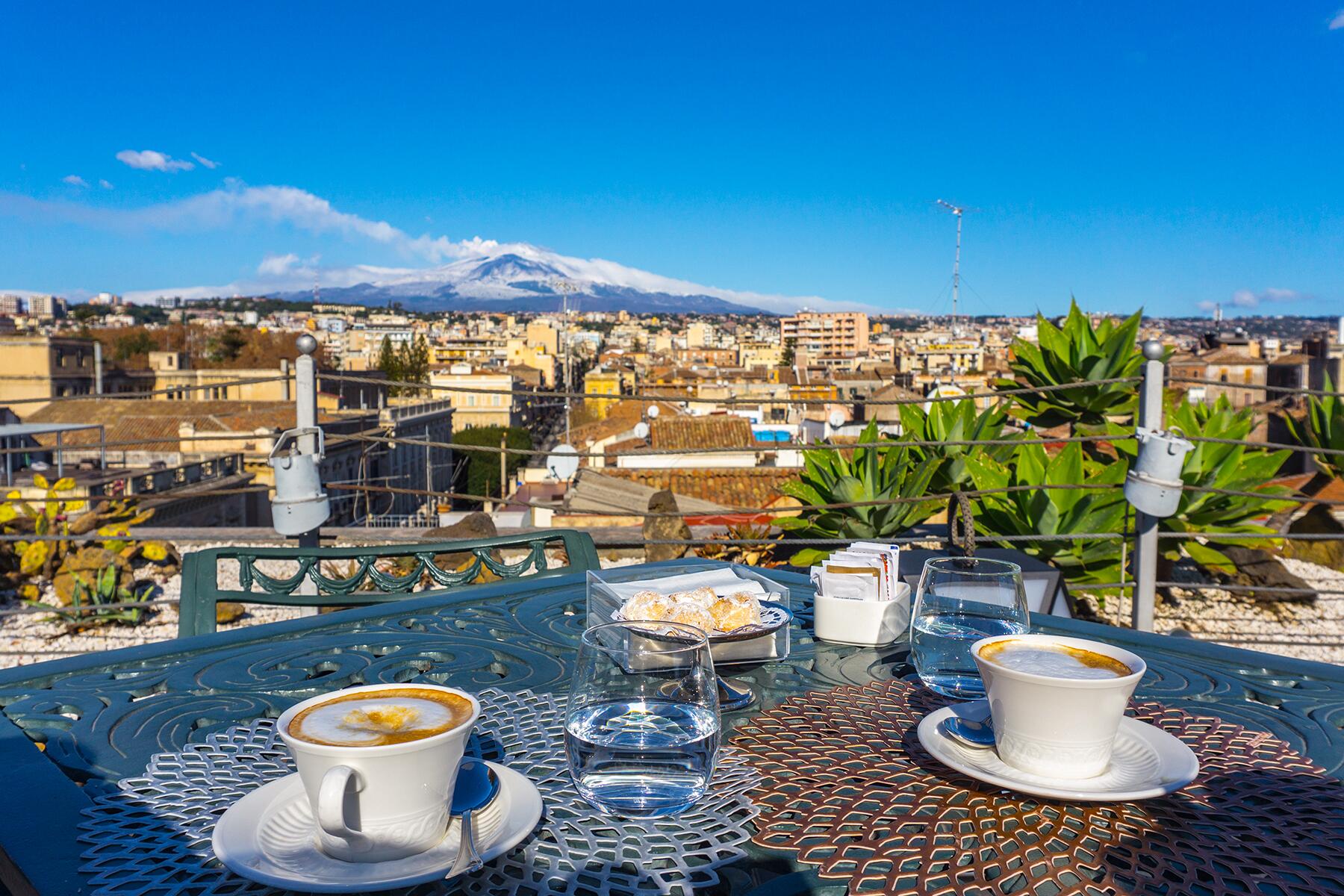Something delicious and unexpected is brewing in Southern Italy.
Italians adore coffee, and coffee adores Italy. It’s a longstanding love affair. Funny enough, though, while Italian bars are famous for serving the world’s best blends, so far, it has always been imported coffee, which is then processed by top Italian brands.
Things are about to change. Believe it or not, the first real Italian coffee that is 100% made in Italy has just launched. Produced in the deepest south, the coffee has a strong taste with a lingering chocolate and cinnamon flavor. The next time you tour Sicily, don’t be surprised to find what at first might look like shrubs of bright red cherries are, in fact, coffee cherries ready to be picked.
We’re way above the so-called “coffee belt” that includes top-producing countries. This made-in-Sicily coffee is the most northern variety produced in the world, above the equator. But how could that be possible? The answer is climate change. Global warming has led to rising temperatures in the Mediterranean, pushing a few visionary Sicilian farmers to experiment and successfully grow non-local tropical plantations, such as coffee.
The Palazzolo brothers are rural pioneers growing experimental coffee near Palermo, along the coast where the sea breeze acts as a natural balm contributing to keeping ideal humidity levels.
Recommended Fodor’s Video
“We’re just at the beginning of our adventure,” says Rosolino Palazzolo. “A few years ago, our coffee plants bore the first fruits, we handpicked and shelled the red cherries, which are white-green inside, and toasted the coffee beans. The coffee was delicious and filled us with pride.”
Today, guided tours take coffee-amateurs to admire the plantations and taste the exquisite Sicilian blend. The warm, dark, and dense liquid ooze out using a traditional Moka pot while a strong scent fills the air as people line up to taste the Rosolino espresso. The tiny coffee plants that dot the estate are expected to grow into larger plantations. The Palazzolo brothers are expanding production and hoping to commercialize their tasty coffee soon.

Sicilians worship coffee. For breakfast, they have coffee-flavored granita, an extremely granular slushy made of frozen espresso topped with whip cream. For now, however, the Palazzolo use the coffee beans of their new plants to feed new baby ones and increase the number of hectares.
“At first friends thought I was crazy, they were like ‘get real man, coffee will never grow in Sicily! I studied and researched, sharpened my farmer skills, and I proved them wrong,” says Rosolino proudly.
In recent years the drop in Sicilian production of oranges and citrus has pushed local farmers to look for alternative, more lucrative fruits, and veggies to grow. Rosolino personally flew to Costa Rica to grab Indigenous Arabica coffee seeds for his orchard, which he planted right in front of his bedroom. One such blend is Caturra, a niche high-quality sub-variety of Arabica. As if by miracle, the coffee seeds found a fertile terrain and started to sprout, albeit very slowly.
It wasn’t, however, an easy job. After all, Sicily is getting warmer, but luckily, it’s not as hot as countries near the equator. To boost humidity levels, the coffee plants were first planted inside the greenhouse, which helped them to grow stronger and flower. Now Rosolino is focusing on expanding production out in the open estate.
Other Sicilian farmers are growing “testing lab” coffee plantations, but it’s still a niche business that will take a while before it reaches consumers in bars, supermarkets, and restaurants.
Rosolino—who also grows other tropical fruits like papaya and banana—believes his agrarian revolution will revamp the local economy and kill food miles, reducing, in the long run, the amount of imported produce from abroad and sponsoring healthy eating habits.
“Growing coffee in my backyard means there are no pesticides and preservatives involved, and if the coffee plants get sick or develop fungus, we cure them through homeopathy by using other plants, just like for humans,” explains Rosolino. “My coffee is biological and organic, it’s a non-intensive, small-scale production that respects agrarian rotation techniques aimed at not stressing the soil by alternating different produce throughout the year.”
But hang on tight. I recently discovered there’s also a new made-in Italy tea. Yup, Chinese-style tea but grown on Italian soil. Even though Italians aren’t big fans of tea as they are of coffee (we’re not the Brits), a steaming cup of tea is always pleasant in cold winter evenings.
Legend says that Mussolini was a worshipper of tea and sponsored production to eliminate Italy’s dependence on imported coffee beans. Today, in the Sicilian town of Raddusa, a local tea amateur has opened a tea house where he keeps a small Indigenous plantation.
Larger tea production estates, located up north where temperatures are a bit cooler, can be found near Lake Maggiore in Piedmont and Lucca in Tuscany. These are élite lab plantations that recently had the first harvests and where curious tourists often wander inside to have an evening sip. The Lake Maggiore one is the largest tea production area in Europe. Its tea, which is grown in green, white, and black varieties, recently won a prestigious tea competition in China, beating Asian competitors.




The coffee is a bitof a surprise. I am familiar with its cultivation from time spent in Honduras. Tea is another story and is not a surprise. Tea has been grown in Imereti Province, Georgia, for generations up until the Soviets left. A group of young Europeans ("The Renegades") have been clearing out the abandoned plantations and making excellent green and black teas for two years now. Imereti is next to the Black Sea coast, so the climate may be similar to that of Northern Italy and soon, of Sicily's mountains as well. I will be interested to try Sicilian coffees and teas.